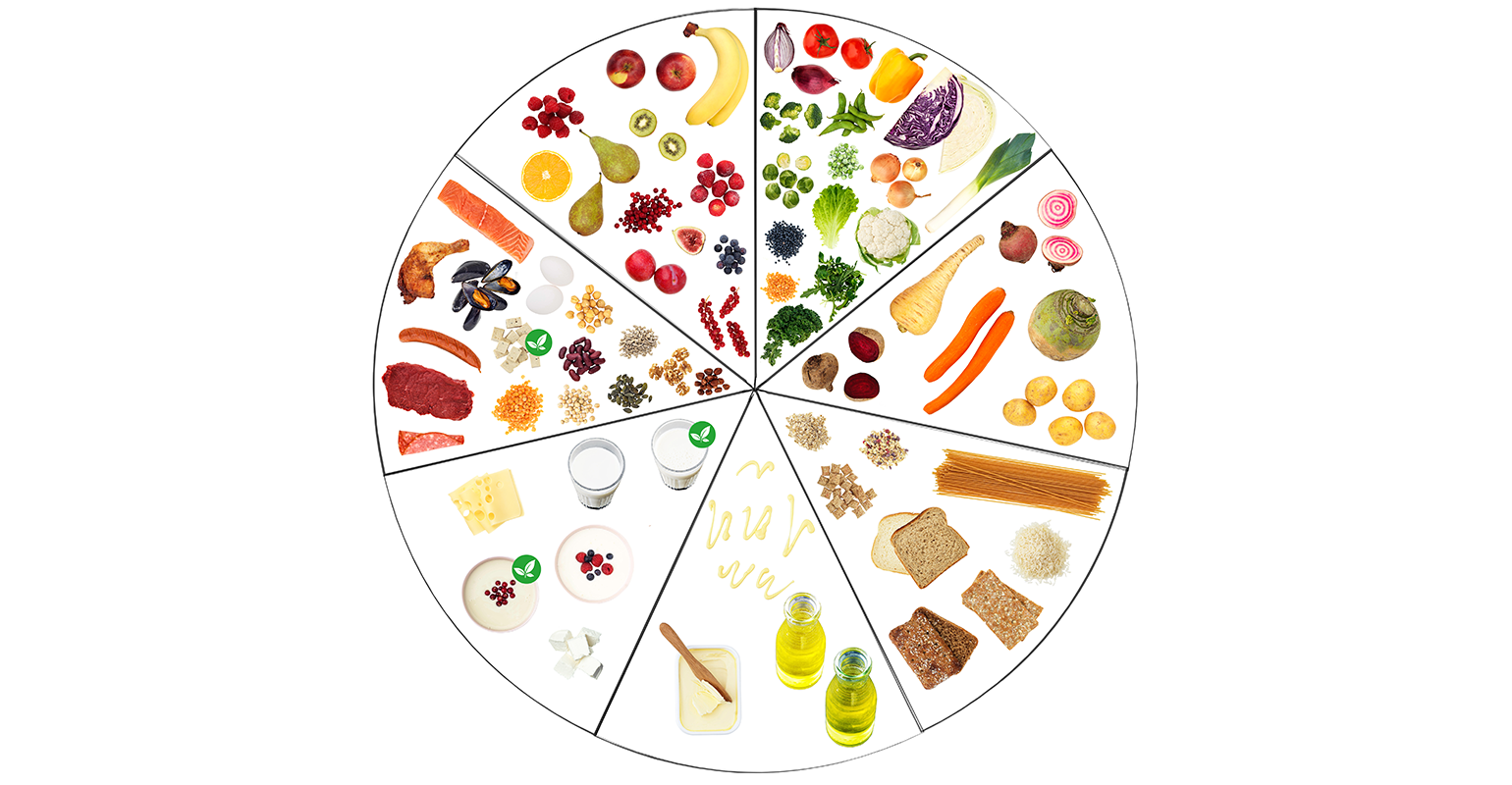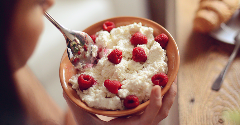News
Swedish Food Agency updates food plate model to consider planetary health
21 Mar 2023
The Swedish Food Agency (SFA) has updated its national dietary recommendations to prioritise the health of the planet with an emphasis on plant-based alternatives to meat and dairy.
The latest iteration of the Food Circle now includes foods suitable for vegans and vegetarians like nuts, seeds, and legumes, which according to the SFA are foods with properties that make them fit into more groups.
“To protect both health and the climate, we need to eat in a different way than today,” said Åsa Brugård Konde, nutritionist at the SFA, who worked on updating the Food Circle. “It is one of the great future challenges.
“There are many people who want to eat more vegetarian, and regardless of whether you eat meat sometimes or not at all, you can now eat from all parts of the Food Circle.”

Along with plant-based foods, the Food Circle also caters for diary alternatives, with the inclusion of plant-based yoghurts and vegetable-based drinks.
The SFA points out that only enriched vegetarian products, such as an oat drink fortified with calcium and vitamin D, can match the nutritional value of traditional dairy products.
“The [plant-based] food may also have lower bioavailability of certain nutrients,” said Konde. “It can be problematic especially for young girls and women of childbearing age, who find it difficult to cover the needs of iron in particular. It is something we will look into more in the future.”
Circle and Plate models work in unison
Despite its considerations, the SFA acknowledges the Food Circle may not address other equally relevant issues, such as the amount of food or how to distribute the food over a meal.
Here, it recommends the plate model, which better demonstrates how to achieve a good balance of nutrients with each meal.
The three-part model, the largest of which consists of vegetables and root vegetables, can fill as much as half the plate for those who are physically inactive.
The second part is reserved for potatoes, pasta, bread or grains such as rice, bulgur, oats and grains, especially whole grain varieties. This portion can be made larger for physically active individuals.
The smallest portion is intended for meat, fish, eggs and legumes, such as beans, lentils and peas and is recommended to fill one fifth of the amount of food on the plate.
Food Circles in Europe
Along with food pyramids, food circles have proved popular in presenting dietary advice in an easy-to-understand convenient format.
Circles have been developed in Portugal, Sweden and the UK, which has also been commended in the past for its efforts to towards shifting to sustainable and healthy diets in the UK.
“The evidence on good health and environmental outcomes related to ‘planetary health’ diets is becoming more convincing,” said Dominic Moran, professor of agricultural and resource economics at the Roslin Institute, University of Edinburgh.
Food circle origins
The first model of the Food Circle was developed by the Norwegian Institute of Public Health in the 1960s, in which many vegan foods were missing.
Commenting on the importance of a more sustainable diet, Line Småstuen Haug, manager at The Center for Sustainable Diets at Sweden’s Institute of Public Health (Folkehelseinstituttet) said: “There is a great need for knowledge about both positive and negative aspects of the diet. We also need good methods to be able to predict how climate change and sustainability measures affect the diet.
“[Folkehelseinstituttet] FHI is in a unique position to obtain this knowledge because we have a national responsibility for monitoring the population's diet.
“An Environmental Biobank established to monitor the population's exposure to environmental toxins and population studies and health registers that can provide new insight into the connections between diet, environment and health outcomes,” she added.
Related news

Empowering innovation in fortification and colouration
13 Nov 2025
Divi’s Nutraceuticals offers a large portfolio of innovative, high-quality ingredients for foods, beverages, and supplements, with bespoke solutions and expert support for product success.
Read more
Danone highlights digestive health as potential ‘tipping point’ for food industry
13 Nov 2025
Danone is betting on a food industry “tipping point” that will bloat the market for healthy products, particularly those related to gut health.
Read more
Standing Ovation and Bel scale up casein production from dairy co-products
11 Nov 2025
Foodtech company Standing Ovation has partnered with cheese specialist Bel Group to manufacture dairy serums for industrial-scale casein production via precision fermentation.
Read more
New UPF standard hoped to offer consumers ‘coherence and clarity’
10 Nov 2025
Ingredients companies are being urged to enter “a new era of partnership and innovation” following the launch of the industry’s first non-UPF verification scheme.
Read more
Whistleblowers accuse UK meat industry of promoting cheap, unsustainable supply
7 Nov 2025
An anonymous group of industry insiders has accused the UK’s biggest food companies of systematically driving down meat quality and welfare standards.
Read more
Cottage cheese makes a comeback as consumers call for cleaner labels
6 Nov 2025
From ice cream to dips and ready meals, cottage cheese is experiencing a renaissance as a high-protein, clean ingredient for health-conscious consumers.
Read more
Bord Bia presents Irish dairy ingredient suppliers at Fi Europe
6 Nov 2025
Dairygold Co-operative Society, The Carbery Group, and Ornua Co-operative: Meet with sustainable producers of Irish dairy ingredients at Food ingredients Europe 2025, Hall 7.2 Stand M18.
Read more
Faravelli at Fi Europe: Showcasing FARA® functional solutions for food and nutra
28 Oct 2025
At Fi Europe 2025 in Paris (stand 72M39), Faravelli showcases FARA® Customized Functional Solutions and a wide ingredient portfolio for food and nutra – delivering quality, innovation, and expertise.
Read more
Agrigum Redefined FIBER
27 Oct 2025
Agrigum has transformed gum acacia into a natural, science-backed fibre that supports gut health, sustainability, and innovation across global food and nutrition applications.
Read more
Expanding boundaries in food & beverage innovation
23 Oct 2025
IMCD and FrieslandCampina Professional expand partnership to deliver Kievit® across EMEA, enabling brands to enhance quality and accelerate time-to-market for tomorrow’s food & beverage creations.
Read more